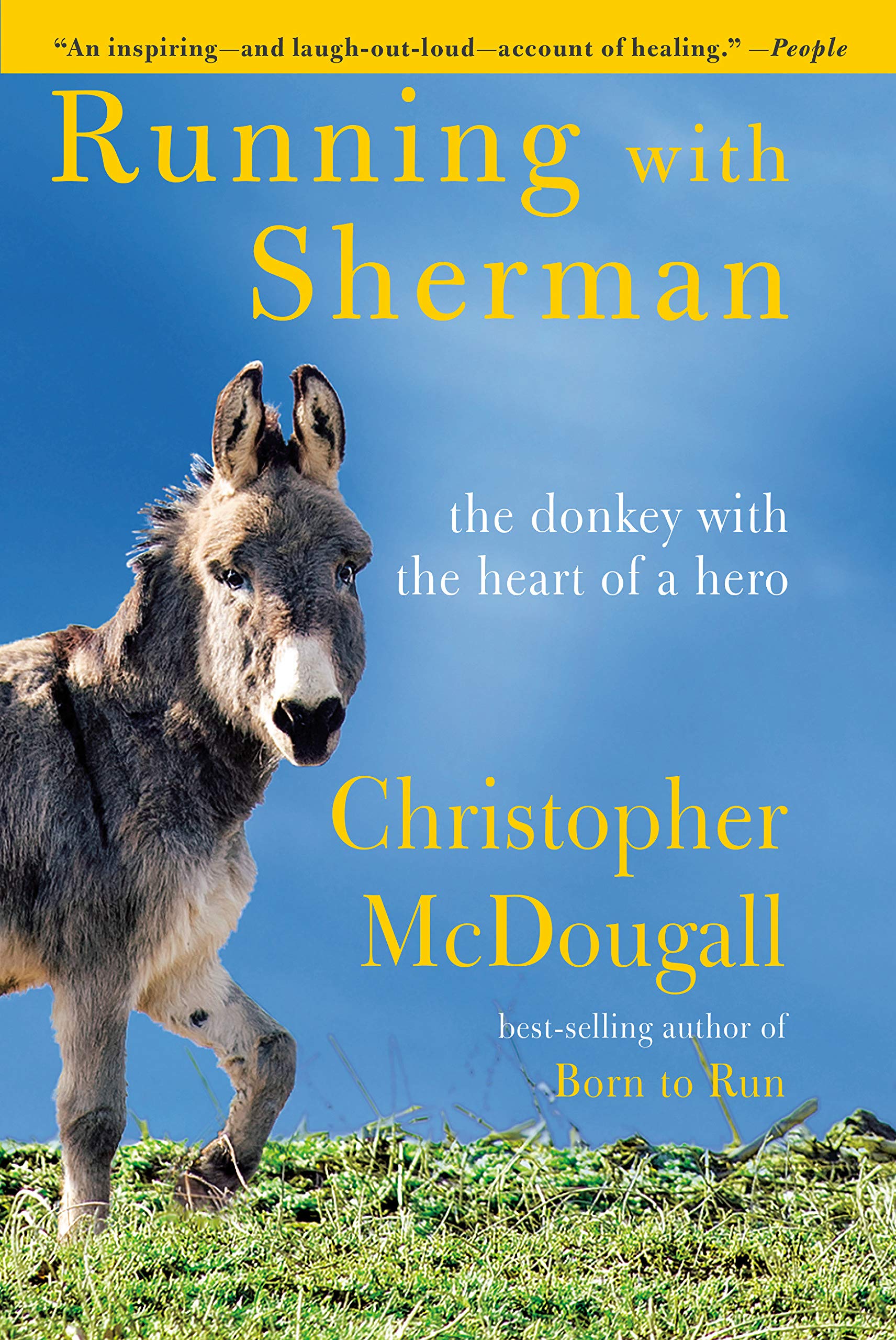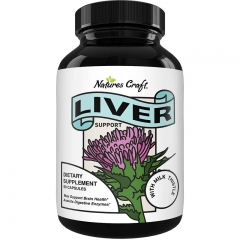-
 Thanh toán đa dạng, linh hoạtChuyển khoản ngân hàng, thanh toán tại nhà...
Thanh toán đa dạng, linh hoạtChuyển khoản ngân hàng, thanh toán tại nhà... -
 Miễn Phí vận chuyển 53 tỉnh thànhMiễn phí vận chuyển đối với đơn hàng trên 1 triệu
Miễn Phí vận chuyển 53 tỉnh thànhMiễn phí vận chuyển đối với đơn hàng trên 1 triệu -
 Yên Tâm mua sắmHoàn tiền trong vòng 7 ngày...
Yên Tâm mua sắmHoàn tiền trong vòng 7 ngày...

- Publisher:Knopf; First Edition (October 15, 2019)
- Language:English
- Hardcover:352 pages
- ISBN-10:1524732362
- ISBN-13:978-1524732363
- Item Weight:1.54 pounds
- Dimensions:6.52 x 1.22 x 9.52 inches
- Best Sellers Rank:#223,492 in Books (See Top 100 in Books) #65 in Animal Behavior & Communication #331 in Running & Jogging (Books) #2,733 in U.S. State & Local History
- Customer Reviews:4.6 out of 5 stars 2,848Reviews

Mô tả sản phẩm
Product Description
"A delight, full of heart and hijinks and humor . . . McDougall is a gifted storyteller who gets to the heart of the human-animal connection." --John Grogan, author of Marley & Me: Life and Love with the World's Worst Dog
From the best-selling author of Born to Run, a heartwarming story about training a rescue donkey to run one of the most challenging races in America, and, in the process, discovering the life-changing power of the human-animal connection.
When Chris McDougall agreed to take in a donkey from an animal hoarder, he thought it would be no harder than the rest of the adjustments he and his family had made after moving from Philadelphia to the heart of Pennsylvania Amish country. But when he arrived, Sherman was in such bad shape he could barely move, and his hair was coming out in clumps. Chris decided to undertake a radical rehabilitation program designed not only to heal Sherman's body but to heal his mind as well. It turns out the best way to soothe a donkey is to give it a job, and so Chris decided to teach Sherman how to run. He'd heard about burro racing--a unique type of race where humans and donkeys run together in a call-back to mining days--and decided he and Sherman would enter the World Championship in Colorado.
Easier said than done. In the course of Sherman's training, Chris would have to recruit several other runners, both human and equine, and call upon the wisdom of burro racers, goat farmers, Amish running club members, and a group of irrepressible female long-haul truckers. An entire community comes together to help save Sherman and, along the way, Chris shows us the joy of a life with animals.
Amazon.com Review
An Amazon Best Book of October 2019: Readers—and runners—will recognize Christopher McDougall’s name as the author of the best-seller Born to Run, and his latest, Running with Sherman, is part animal love story, part adventure book, part feminist running manifesto, and part scientific exploration into healing. What it lacks in the cutting edge scientific research that helped make Born to Run a hit, it makes up for with heart and…fuzzy animals. Journalist McDougall lives on a farm in Amish Country (PA), and one day his neighbor alerts him to a donkey that has been neglected by its hoarder owner. McDougall adopts the donkey—Sherman—sight unseen and receives a traumatized, unhealthy animal who can barely walk due to his neglected hooves. While nursing Sherman back to health with the help of an equine expert, McDougall learns that donkeys thrive from having a job, and he remembers that ambitious athletes like himself race burros once a year in Colorado. Thus kicks off McDougall and Sherman’s training for the aforementioned annual burro race. Along the way they pick up a wacky cast of characters: two additional donkey running pals; a young man recovering from depression and a suicide attempt; McDougall’s incredibly patient, former hula-dancer wife turned trail runner and donkey whisperer; an Amish running club; two women who drive McDougall and donkeys across the country…you get the idea. McDougall is a fantastic storyteller and a witty writer: “The Amish have a better retention rate than Netflix: roughly 90 percent of young Amish adults choose to stick with the faith and join the church for life.” A fascinating and inspiring hybrid nonfiction salve to the problems of our day, Running with Sherman achieves the running equivalent of a hole-in-one. --Sarah Gelman, Amazon Book Review
Review
“An inspiring—and laugh-out-loud—account of healing.” —People Magazine
“Hilarious. . . . McDougall tries to persuade . . . [a] donkey to partner with him for a ridiculously challenging pack burro race in Colorado. He is forced to realize that to win over the donkey he must slow down—and meet the inscrutable creature on its own terms. . . . Commune with animals and humans may rediscover their own humanity.” —The Philadelphia Inquirer
“A smart critique of the culture of conventional American sports.” —Outside
“Running with Sherman has . . . adventure, passion, and humor. . . . I promise that you will laugh, cry and cheer for the irrepressible Sherman and his hapless human partner.” —Aspen Daily News
“An absorbing tale . . . Running with Sherman is a highly engaging, deeply moving account of how fortitude, patience, love, and tenacity can heal physical and emotional wounds, and the amazing bond that can develop between humans and animals.” —The Santa Barbara Independent
“McDougall’s inspiring story is not to be missed . . . A journey full of heart and humor that will touch the animal-ambivalent as much as the animal-lover.” —BookPage
“A humorous and heartwarming book about not only running with donkeys but about community, our connections with one another, and our abilities to persevere and overcome physical and mental challenges.” —Library Journal
“Both inspiring and humorous, a testament to the depth of the animal-human connection.” —Booklist
“Sherman’s transformation from dying donkey to confident runner involved a circle of family, friends, neighbors, and a few feisty donkeys, each of whom McDougall portrays in affectionate, vivid detail . . . A charming tale of a resilient donkey and a community's love.” —Kirkus Reviews
“Runners and animal lovers alike can find inspiration in this story.” —Publishers Weekly
“I’ve always believed that people who didn’t love miniature donkeys are going to hell. I think people who don’t love this book may be too. This is more than just a lovely tale about a wounded animal. It is the kind of story that breaks your heart and mends it all in the space of a paragraph or even a line. Besides, it’s about a MINIATURE DONKEY.” —Rick Bragg, best-selling author of The Best Cook in the World
“I, like roughly three million other running enthusiasts, was briefly obsessed with Born to Run: A Hidden Tribe, Superathletes, and the Greatest Race the World Has Never Seen when it appeared a decade ago. Now, roving journalist and good-natured running proselytizer Christopher McDougall is back with another inspirational of borderline insane people racing inhumanly long distances. Except, TWIST: this time Chris isn’t just pounding the pavement with his fellow homo sapiens. In Running with Sherman, he recounts his efforts to rehabilitate the body, mind, and spirit of a weary donkey by entering them both in the pack burro racing World Championship.” —Dan Sheehan, Lit Hub “Most Anticipated Books of 2019 part 2”
“What an insane, amazing story. I genuinely cried so many times throughout it, and cried the happiest tears at the end. Running with Sherman is an inspiring love letter to the beautifully broken and the immeasurable power of healing together. It is a meaningful reminder that no one is ever beyond repair. This book motivated me to test my limits, and made me feel deeply ashamed my work ethic and athletic prowess are only half that of a farm animal. Sherman the Donkey is my personal superhero.”
—AJ Mendez Brooks, aka AJ Lee, WWE superstar and author of Crazy Is My Superpower.
“From the first page to the last, Running with Sherman is a delight, full of heart and hijinks and humor. I quickly fell in love with Sherman and the colorful cast of two- and four-legged characters that surrounded him. Christopher McDougall is a gifted storyteller who gets to the heart of the human-animal connection.”
—John Grogan, author of Marley & Me: Life and Love with the World’s Worst Dog
“A charming story about animals and people in Amish Country.”
—Temple Grandin, author of Animals Make Us Human
About the Author
Christopher McDougall covered wars in Rwanda and Angola as a foreign correspondent for the Associated Press before writing his best-selling book Born to Run. His fascination with the limits of human potential led him to create the Outside magazine web series, "Art of the Hero." He currently lives with his wife, two daughters, and a farmyard menagerie in Lancaster County, Pennsylvania.
Excerpt. © Reprinted by permission. All rights reserved.
Chapter 3: No One Likes Us, We Don’t Care
“Oh, crap!” Tanya suddenly realized it was nearly three p.m.
“Late for school.”
She grabbed her shears and gear and moments later her SUV was spitting gravel as Hurricane Tanya disappeared down the drive-way. Every morning and afternoon, Tanya was the driver for local Amish children who lived too far from their one- room schoolhouse to make the trip on foot. After delivering them home, she had a full evening of chores with her own animals, which included three donkeys, two carriage horses, one goat, one pig, a wading pool full of ducklings, and a rescue horse she’d saved from slaughter so she could teach a teenage neighbor how to ride. She wouldn’t be able to check on Sherman again till morning.
“What do we do now?” asked my wife, Mika. We stood at the fence, waiting to see if Sherman would move.
Nothing.
“Either he’s getting better, or— ” I glanced around to make sure the kids couldn’t hear. “Or we’re on death watch. Tanya said at this point, it’s out of our hands.”
Out of our hands. It gave me a sickening feeling, saying those words, because for one of the few times in my life, it was true. There was no one else to call, no further treatment to try, no friend to seek for advice. That little spark of hope I’d felt a minute ago faded away, replaced by the chest- squeezing grip of doom you get when your car spins on ice. Sherman was alone inside this tunnel, and he was either going to walk out the other end on his own or disappear into the darkness.
I just wished I knew what was going through his mind. If there was no way to pull him back, at least we could ease his exit with kindness and care. But how could we bring him peace when we had no clue what he was thinking? Was he fighting for his life, or giving up? Did he see me as his friend, or as just another tormentor? The first rule of healing is “Do no harm,” but Sherman was making me realize that I knew so little about animals, I couldn’t tell if I was soothing or scaring him.
Mika and I weren’t just surprised to be in this predicament. We still couldn’t believe we were in this zip code.
I grew up just outside of Philadelphia, in the working- class suburbs where the El tracks and row houses of West Philly gave way to the big families and small backyards of Upper Darby. My only contact with country livin’ came from books; I was so obsessed with My Side of the Mountain that I ran away from home at age nine with only a Wham- O boomerang, fully intending to live in a hollow tree in the woods and hunt with a hawk like Sam Gribley did. Around one o’clock in the morning, the state police found me six miles from home in a patch of woods near Springfield Mall and hauled me back for a parental smackdown that was epic enough to put an end to any future walkabouts.
After that night, I was rarely far from the company of at least 1.5 million neighbors. I went to high school in North Philly and became a street- court rat, spending all my time outside of class roaming the city with my friends in search of pickup games. After college, I bounced around between jobs and cities before taking a leap overseas to see what life was like in Madrid. I taught English for a while and learned enough Spanish to finagle my way into an interview for a news reporting job with the Associated Press. I had no credentials for the job, but the bureau chief in Madrid, Susan Linnee, was a battle- hardened newswoman who scorned the hothouse- flower desk editors that New York headquarters kept sending her and preferred her own method for discovering street- savvy “talent in the rough,” as she put it.
“The guy before you, what sold me was he looked like the lead singer of the Fine Young Cannibals,” Susan told me. Luckily, the Cannibal turned out to be such a natural that within a year, he was recruited to become a war correspondent in Bosnia. Someone had to replace him, pronto, which was the only reason I got through the door for an interview. Susan grilled me for about an hour, and when my utter lack of experience became embarrassingly obvious, she abruptly stood up and called an end to the interview.
“I’ve heard enough,” she said, sticking out her hand.
“Okay,” I agreed, more than ready to beat it. “If you change— ”
“We’ll train you here for a week,” she continued, already steaming ahead with her plans. “Then we really need you there.”
“There?”
True, she had mentioned that the Cannibal was her Lisbon correspondent, but I naturally assumed they would transfer someone from Madrid and keep me at base to learn the ropes. I’d never been to Portugal in my life and didn’t know a word of the language, but that wasn’t my biggest problem. Civil war had just re- ignited in Angola, which didn’t seem like any of my business until my new boss explained that as a former Portuguese colony, Angola literally became my business at the moment I shook her hand.
One month later, I was behind rebel lines in southern Africa, doing my best to stay alive while pretending I had any idea what I was doing. I was teamed with Guilherme, a Portuguese photographer who also spoke Spanish, so most of the time the only way I could gather information from Angolan soldiers was by way of a spoken- word Rube Goldberg machine: I’d feed my questions in Spanish to Guilherme, who would translate them into Portuguese for the soldiers, and then translate their answers back to me in Spanish so I could jot them down in English. Guilherme had his own work to do and really didn’t have time for this nonsense, so he would listen to a soldier’s long, teary- eyed saga and boil it down to “They shot lots of the bad guys.”
“That’s it?”
“Big picture.”
Fine by me; the tighter the quote, the quicker I finished. Every day, I had to scout around, interviewing refugees, aid workers, and frontline fighters, then condense their info into AP news stories that needed to be sent to New York before sunset. Darkness was my deadline, because the only way to transmit from the field was with a satellite telex the size of a wheelie suitcase. You didn’t want to be up on a hill looking for a signal with that thing at night; for a roving rebel soldier with an itchy trigger finger, the only thing visible against the dark sky would be the blinking green “SHOOT ME!” lights on my console. The second I hit Send, I slammed the cover shut and scuttled for safety.
Like the Cannibal, I managed to stick around long enough to get the hang of it. When massacres erupted in Rwanda two years later, I was assigned to embed with the Tutsi rebel army that was racing across the border to rescue civilians from the murderous militias. We were only a small band of reporters traveling with the Tutsis, and we got smaller by the day. One American correspondent was airlifted out when her photographer was shot through the legs and she had to stop the bleeding with her bare hands. A French radio journalist was stricken by cerebral malaria and barely survived. My photographer left after we entered a schoolhouse and found the bodies of dozens of young children who’d been hacked to death with machetes; the next morning, he found his hands were still trembling. When the Tutsis finally chased the murderers into Congo and the fighting died down, I was desperate for a rest. Instead, I couldn’t sleep.
It was time to go home.
Maybe it was a bad idea to leave Lisbon, ditching a dream job in a beautiful seaside city, but it turned out I wasn’t the only one making that mistake. I returned to Philly and quit the AP to scratch out a living as a freelance magazine writer. One afternoon, I was out for a run with Jen, a friend from the AP’s Philly bureau, and she told me about a reporter from Hawaii who’d rotated in for a one- year stint. Island gal wasn’t loving her new home, and Jen didn’t have to tell me why: Philly can be cold and bitter, and that’s just the people. If you’re familiar with our monument to Frank Rizzo, one of the most brutal police chiefs in city history, or the time Santa Claus showed up at an Eagles game and we drilled his jolly old ass with snowballs, or the way Eagles fans and the Eagles themselves sang “We’re from Philly, f***ing Philly, no one likes us, we don’t care” after Philadelphia won the Super Bowl in 2018, you know it’s not the warmest and fuzziest landing spot for strangers. It couldn’t be easy for a homesick Hawaiian, so when Jen told me she was taking African dance classes, I thought I could cheer her up a little with some CDs I’d brought back from Angola.
Jen invited me to a dinner party that weekend. When I arrived, CDs in hand, I scanned the living room, searching for the brooding, heavyset Pacific Islander. I was still looking when a breathtaking woman with a warm, welcoming smile approached, looking like she’d just surfaced off a Tahitian island with a handful of pearls. I could barely stutter a greeting because my synapses were jammed by two colliding thoughts:
1 You genius, bringing those CDs.
2 Never, ever mention you thought all Hawaiians looked like NFL linemen.
She told me her name was Mika,* and that’s where our conversation ended. I handed over the music and then got as far away from her as I could, spending the rest of the evening in the corner looking at prints with my photography buddy, M’poze. I’d ruined enough first impressions in my time to grasp that when I surprised Mika with that gift, I’d hit my peak. This woman was so far out of my league, anything I said after that would just begin the process of scaring her off. When Mika brought me a plate of food a little later, I gave her a quick thanks over my shoulder and pivoted right back to M’poze’s photo book. I stayed riveted to that thing for so long, even M’poze was getting bored. But if he was cornered, so was I. I was betting the house on the Tao of Steve.
I’d recently seen an indie film that offered the theory that the best way to attract someone is to follow the leads of both Zen Buddhism and those twin pillars of sexy self- command, Steve McQueen and the Six Million Dollar Man, Steve Austin. The Tao of Steve wasn’t pickup- artist stuff; it was more like a guide to better living through impulse control, based on the premise that you get what you want only when you stop wanting it. Whenever you meet someone who makes your pulse race, you’re supposed to follow three steps:
· Be desire-less
· Be excellent
· And be gone
Purely by dumb luck, I’d nailed the first two. I’d arrived looking like a hero, and if I didn’t want to blow it, I had to keep my mouth shut and get out the door while Mika still thought I was kind and chill. So chill, in fact, that when the party was winding down and we saw that an awful winter storm had blown in, I turned Mika down when she offered a bunch of us a ride home in her pickup. (Yes, the exotic journalist was also wheeling around Philly in her Hawaiian surfboard- mobile. Any argument that she was out of my league?) Two other guys happily squeezed into the truck’s cab while Mika asked if I was sure.
“Yup, I’m good,” I said. I trudged off into the freezing rain, hoping I didn’t look as much like a dumb- ass as I felt. Sometime during that miserable hike through North Philly, it dawned on me that like all Taos, the Steve version didn’t come with an endgame. Exactly how you’re supposed to boomerang back from “be gone,” I had no idea.
I got my answer a few days later. Mika got my number from Jen and called to thank me for the CDs. I mentioned some African food shops in West Philly she might like to check out, and soon we began spending time together. Mika was actually African American and Chinese, I learned, or maybe it was Thai? She didn’t know for sure, because she’d been conceived when her mother had a brief romance in junior college with a foreign exchange student who suddenly vanished before Mika was born. Soon after, Mika’s mother married her true love, an Army nurse named Dave, who took his new family with him wherever he was deployed across the country. Mika grew up in one city after another, always feeling like an outsider, never looking like anyone else, until the day they arrived in Hawaii. For the first time, people weren’t constantly eyeing her long curls and cappuccino complexion and asking, “Where are you from? What are you?” Hawaii became her home because it treated her like family.
Mika never intended to leave Honolulu, but she decided to spend one year on the mainland while her boyfriend was learning hotel management in Hong Kong. Maybe I was still Tao-ing, but neither the boyfriend nor the ticking departure clock threw me off. Mika and I had a blast together, roaming used bookstores and attempting with tragic results to re- create stewed goat dishes that I remembered from Uganda. I told Mika about my plans to return to Africa to ride the entire continent on a motorcycle, following the fabled Capetown-to-Cairo route, and for the first time I got an inkling that we might have a future when she became genuinely intrigued about the possibility of saddling up behind me for the adventure.
Instead, we ended up in a farmhouse in West Virginia, discussing marriage. For both of us, it was a left turn we hadn’t seen coming, but we could sense we were edging toward a life together and we had to figure out how it could work for real. Did it mean good- bye to Kailua beaches and adios to that Triumph Bonneville roaring into a Serengeti sunset? Mika had already handled the toughest jobs; she’d broken up with her boyfriend, who bolted straight for the airport and flew in from Hong Kong to try to talk her out of it, and she’d resigned herself to a longer tour of duty in Philly, where most of my freelance work was based. But before we dove in, Mika proposed a final stress test: she suggested we get out of the city and spend a week completely on our own, desert-island style, to see how happy we were without friends or a city to distract us.
She definitely picked the right spot. After driving four hours from Philly, we were rumbling down a lonely dirt road on the outskirts of Appalachia. We finally arrived at an old farmhouse hidden in the woods, miles from the nearest neighbor. We creaked open the ancient door to find a beautifully preserved gem, with cast- iron woodstoves and a greenhouse converted to a hot tub room. The first few days felt a little strange, with nowhere to go, no one to see, and not even a SEPTA bus rattling the windows to lull us to sleep at night, but by the end of the week, we felt right at home. When I found I could laze in the creek all morning and still file an article back to Philly with the cabin’s creaky Internet dial- up, we were asking each other, “Why is this vacation? Why isn’t this just . . . life?”
I’m a pro at tasks that require me to blow off work for no practical reason (ask me sometime how to repair vintage fountain pens), so as soon as we got home, I began hunting for a home that I knew we had no chance of buying. First I checked whether we could get DSL in that part of West Virginia and whether the house we’d rented was even for sale. Nope, and nope. Then I spread the net wider. Mika and I began roaming the fancypants horse country between Philly and New York, pestering realtors with an insane list of requirements on the chance that maybe, somehow, there was a cheap, cozy cottage by a brook that everyone else had accidentally overlooked. We wanted something old but restored, isolated but train- accessible, rural but DSL- equipped, and, of course, compatible with a struggling writer’s income, which meant the same price it sold for in 1870.
We’d gotten absolutely nowhere by the time our first daughter, Maya, was born, but instead of getting real, we kept treasure hunting. We listened to hours of Wiggles and Elmo Sing-Alongs as we hauled Maya to one death trap after another, including a burned- out shell on a soggy patch near the Delaware River with giant penises spray- painted on the few surviving walls. “For your price range,” our realtor said, “this isn’t bad.”
For two years, we struck out. Then, late one night, something impossible popped up online. I sat there in the dark, staring at the photo and muttering, “No way.” A hand- hewn log cabin on four acres, with a fieldstone chimney, a creek, its own sweet- water spring, a dirt- road walk to the Susquehanna River, and protected farmland on all sides. Only ninety minutes from downtown Philly, and it cost less per month than our apartment? Perfect!
Except . . .
“You know where this is, riiiight?” the realtor cautioned when I called the next morning, drawing the word out to make it clear he was in no way accountable for this folly. Only two houses were down in that hollow; everything else, for hundreds of acres around, was open farmland. Peach Bottom had no police, no local government, not even a grocery store; the only place within fifteen miles to buy food was a one- room shop in the back of an Amish farm. If we moved out there, he warned, we’d be completely on our own. That’s why, tasty as it looked in photos, no one had made an offer on the place for over a year. Whatever. It had to be better than the condemned House of Dongs, right? But during the drive out from Philly, the realtor’s warning began to sink in. It felt like we were clicking off centuries rather than miles; in little more than one hour, two hundred years vanished from the landscape. McMansions and mini- malls gave way to red barns and windmills; Escalades were replaced by horse and buggies and hay wagons. We knew Lancaster County was famous for its Amish community, but we hadn’t realized we were heading into an even deeper, more rustic heartland: the river hills of the “Southern End.” Even by Lancaster standards, the Southern End is another world, a place where the post office has a hitching post, the kids have Drive Your Tractor to School Day and no classes on the first day of hunting season, and you’re about as likely to find a gun range behind the house as a swing set.
When we located the log cabin for sale, we were stunned. Wins-low Homer couldn’t have done this place justice. We pulled into the dirt- and- gravel driveway to find horses grazing along the fence line, watercress blooming in the creek, and an Amish farmer rum-bling past in a steel- wheeled wagon. Unbelievable. If a milkmaid had appeared with buckets of frothy cream across her shoulders, I’d have been only a little bit surprised. We threw open the car doors, raving about the gorgeous view, until I spotted something bizarre out of the corner of my eye. Or did I? When I jerked my head around to look, all I saw was the blinding afternoon sun. Weird, I thought. It looked just like—
Then it reappeared. There, stepping out of the glare, was a lone horseman watching us from the hillside across the road. He was wearing a Stetson and a serape, Josey Wales style, and had a machete and a rifle hanging from his saddle. I lifted a hand to wave, but he wheeled his horse, dug in his heels, and galloped off.
“Zach’s out hunting pigs again,” explained the homeowner, who’d walked down to greet us. Explanation: The thirteen- year- old who lived over the hill was riding through the cornfields, shooting groundhogs. “Don’t worry, he won’t shoot over here. Not unless you want him to.” For the rest of the day, those brief glimpses of the Lone Pighunter and one Amish farmer were the only signs we saw of human inhabitation. If we moved here, it really would feel like volunteering for a manned mission to Mars. How would we survive when the house was snowed in and the power died? Where was the nearest hospital, and what were the schools like?
Those were all sensible questions, none of which Mika and I had ever thought to ask before pulling the realtor aside to make an offer. A few weeks later, we were leaving Philly for the Southern End.
- Mua astaxanthin uống có tốt không? Mua ở đâu? 29/10/2018
- Saffron (nhụy hoa nghệ tây) uống như thế nào cho hợp lý? 29/09/2018
- Saffron (nghệ tây) làm đẹp như thế nào? 28/09/2018
- Giải đáp những thắc mắc về viên uống sinh lý Fuji Sumo 14/09/2018
- Công dụng tuyệt vời từ tinh chất tỏi với sức khỏe 12/09/2018
- Mua collagen 82X chính hãng ở đâu? 26/07/2018
- NueGlow mua ở đâu giá chính hãng bao nhiêu? 04/07/2018
- Fucoidan Chính hãng Nhật Bản giá bao nhiêu? 18/05/2018
- Top 5 loại thuốc trị sẹo tốt nhất, hiệu quả với cả sẹo lâu năm 20/03/2018
- Footer chi tiết bài viết 09/03/2018
- Mã vạch không thể phân biệt hàng chính hãng hay hàng giả 10/05/2023
- Thuốc trắng da Ivory Caps chính hãng giá bao nhiêu? Mua ở đâu? 08/12/2022
- Nên thoa kem trắng da body vào lúc nào để đạt hiệu quả cao? 07/12/2022
- Tiêm trắng da toàn thân giá bao nhiêu? Có an toàn không? 06/12/2022
- Top 3 kem dưỡng trắng da được ưa chuộng nhất hiện nay 05/12/2022
- Uống vitamin C có trắng da không? Nên uống như thế nào? 03/12/2022
- [email protected]
- Hotline: 0909977247
- Hotline: 0908897041
- 8h - 17h Từ Thứ 2 - Thứ 7
Đăng ký nhận thông tin qua email để nhận được hàng triệu ưu đãi từ Muathuoctot.com
Tạp chí sức khỏe làm đẹp, Kem chống nắng nào tốt nhất hiện nay Thuoc giam can an toan hiện nay, thuoc collagen, thuoc Dong trung ha thao , thuoc giam can LIC, thuoc shark cartilage thuoc collagen youtheory dau ca omega 3 tot nhat, dong trung ha thao aloha cua my, kem tri seo hieu qua, C ollagen shiseido enriched, và collagen shiseido dạng viên , Collagen de happy ngăn chặn quá trình lão hóa, mua hang tren thuoc virility pills vp-rx tri roi loan cuong duong, vitamin e 400, dieu tri bang thuoc fucoidan, kem chống nhăn vùng mắt, dịch vụ giao hang nhanh nội thành, crest 3d white, fine pure collagen, nên mua collagen shiseido ở đâu, làm sáng mắt, dịch vụ cho thue kho lẻ tại tphcm, thực phẩm tăng cường sinh lý nam, thuoc prenatal bổ sung dinh dưỡng, kem đánh răng crest 3d white, hỗ trợ điều trị tim mạch, thuốc trắng da hiệu quả giúp phục hồi da. thuốc mọc tóc biotin
























 KHUYẾN MÃI LỚN
KHUYẾN MÃI LỚN Hỗ Trợ Xương Khớp
Hỗ Trợ Xương Khớp Bổ Não & Tăng cường Trí Nhớ
Bổ Não & Tăng cường Trí Nhớ Bổ Sung Collagen & Làm Đẹp
Bổ Sung Collagen & Làm Đẹp Bổ Thận, Mát Gan & Giải Độc
Bổ Thận, Mát Gan & Giải Độc Chăm Sóc Sức khỏe Nam Giới
Chăm Sóc Sức khỏe Nam Giới Chăm Sóc Sức khỏe Nữ Giới
Chăm Sóc Sức khỏe Nữ Giới Chăm sóc Sức khỏe Trẻ Em
Chăm sóc Sức khỏe Trẻ Em Thực Phẩm Giảm Cân, Ăn Kiêng
Thực Phẩm Giảm Cân, Ăn Kiêng Bổ Sung Vitamin & Khoáng Chất
Bổ Sung Vitamin & Khoáng Chất Bổ Tim Mạch, Huyết Áp & Mỡ Máu
Bổ Tim Mạch, Huyết Áp & Mỡ Máu Bổ Mắt & Tăng cường Thị lực
Bổ Mắt & Tăng cường Thị lực Điều Trị Tai Mũi Họng
Điều Trị Tai Mũi Họng Sức Khỏe Hệ Tiêu hóa
Sức Khỏe Hệ Tiêu hóa Chăm Sóc Răng Miệng
Chăm Sóc Răng Miệng Chống Oxy Hóa & Tảo Biển.
Chống Oxy Hóa & Tảo Biển.